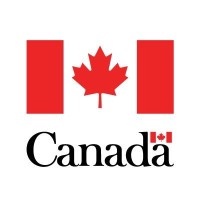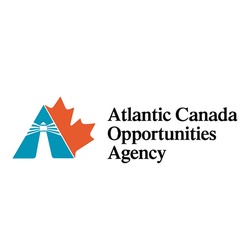
PrairiesCan — Aerospace Regional Recovery Initiative — Indigenous Stream
At a glance
- Up to 75% of project cost
- Receipt of requests is now closed
- Manufacturing
- Transportation and warehousing
- Canada
- Non-profit
- Public or Parapublic institution
- For-profit business
- All revenue ranges
- All organization sizes
- Indigenous Peoples
- Other Racialized Persons
- Youth (<40)
- Women
- Higher Education
- Research
- Environment
- Economic, Social and Community Development
- Employment and Training
- Business Associations
- Diversity and Inclusion
- Children & youth
- Indigenous peoples
- Women & girls
- Business owners / entrepreneurs
- Minority groups
- All structures
- Municipal
- Regional
- Provincial
- National
Overview
If your business is working on a project to become more environmentally friendly, improve productivity, strengthen commercialization or integrate with regional and global supply chains, you could get a contribution to help with some of the costs.
Activities funded
The Aerospace Regional Recovery Initiative supports projects that aim to advance sustainability, productivity, and commercialization in the aerospace sector. Eligible activities focus on environmental sustainability, enhancing productivity, and fostering innovation and integration into supply chains.
- Transitioning towards greener products and operations or adopting environmentally sustainable practices, such as the commercialization of clean tech products and electrification initiatives.
- Improving productivity through advanced manufacturing, Industry 4.0 practices, scaling up high potential firms, and enhancing workforce skills through development programs.
- Strengthening commercialization of innovative products and services and integrating new start-ups and technologies into key aspects of the value chain.
- Providing targeted support to specific groups such as women, Indigenous peoples, youth, and visible minorities to promote inclusion and address barriers in the economy.
- Developing the workforce to address labor and skill shortages through training, upskilling, and hiring activities.
- Offering technical assistance for adopting technologies and efficient management practices tailored to SME needs.
- Making capital investments up to $10 million to support transformational projects and emerging high-profile SMEs in the pre-SIF phase.
- Applying strategic procurement tools to support SMEs and drive the adoption of new technologies.
Eligibility
This grant is open to entities operating within the aerospace sector, which includes a variety of business types and organizations.
- Eligible applicants include businesses operating in the aerospace industry.
- Small and medium-sized enterprises (SMEs) in the aerospace sector can apply.
- Not-for-profit organizations providing services to SMEs, such as municipalities, post-secondary institutions, provinces, and Indigenous organizations, are eligible.
- Indigenous businesses and organizations are encouraged to apply and may receive funding exceeding standard thresholds.
Who is eligible?
Eligible applicants for the Aerospace Regional Recovery Initiative (ARRI) in the Prairie provinces include businesses operating in the aerospace industry and organizations that support them. This encompasses:- Small and Medium-sized Enterprises (SMEs).- Not-for-profit organizations providing services to SMEs, including municipalities, post-secondary institutions, provinces, and Indigenous organizations.- Indigenous applicants, who may receive funding that exceeds outlined thresholds, are also invited to apply.Projects must aim to enhance the productivity, green operations, supply chain integration, and inclusivity to strengthen the Canadian aerospace sector's competitiveness.Who is not eligible
This grant does not specify any explicit exclusions or restrictions on the types of companies or industries that are ineligible to apply. However, eligibility is focused on the aerospace sector and its supporting organizations.
Eligible expenses
The Aerospace Regional Recovery Initiative (ARRI) supports a range of projects aimed at enhancing the competitive edge of the Canadian aerospace sector in a post-pandemic economy. The eligible activities emphasize greening operations, boosting productivity, and integrating new technologies to strengthen supply chains and market presence.
- Transition towards greener products and operations or adoption of environmentally sustainable practices, including electrification and commercialization of clean tech products.
- Improvement of productivity through advanced manufacturing, Industry 4.0, and workforce development, which includes upskilling and training initiatives.
- Commercialization of innovative products and services, especially those integrating new start-ups and technologies into the value chain.
- Workforce development to address labour and skills shortages, including indirect support via not-for-profits offering services or directly to SMEs for training and hiring activities.
- Technical assistance for adopting technologies and management practices tailored to SMEs' specific needs.
- Capital investments up to $10 million to support high-profile emerging and expanding SMEs pre-SIF phase.
- Application of procurement tools to leverage support for SMEs and integration of new technologies.
Eligible geographic areas
This grant is specifically available for companies operating in the Prairie provinces of Canada. Eligible locations are tailored to support the regional economic development of these areas.
- Alberta
- Manitoba
- Saskatchewan
Selection criteria
The evaluation and selection of projects for the Aerospace Regional Recovery Initiative (ARRI) are based on specific criteria to ensure alignment with the program's objectives.
- Alignment with the objectives of the program.
- The eligibility of the applicant, project activities, and project costs.
- Clear, measurable economic benefits that are a direct result of the project (for example, revenues or the number of jobs created relative to the funding request).
- Strength of the management of the applicant.
- Financial capacity of the applicant to complete the project.
- For corporate projects, the company’s financial strength and ability to repay based on historical financial reporting and logical projections.
- Leveraging from other funders.
- Strong market demand for the product or service.
- Technology readiness.
How to apply
Review Eligibility and Objectives
- Ensure your organization and project align with the grant's eligibility criteria and objectives.
- Identify specific ways your project will contribute to greening operations, improving productivity, or strengthening commercialization.
Gather Required Information
- Collect all necessary documentation, including financial statements, confirmation of funding sources, and project plans.
- Prepare a detailed budget outlining eligible costs.
Draft Your Application
- Clearly outline how your project meets the program objectives.
- Emphasize measurable economic benefits and inclusivity values.
- Include details on leveraging other funding and market demand.
Submit Application
- Contact the regional development agency via the provided contact number for submission guidelines.
- Submit your application, ensuring all sections are fully completed and all documents are included.
- Applications are accepted until funding is fully committed, so timely submission is crucial.
Confirmation of Submission
- Await confirmation from the regional development agency following submission.
- Retain any confirmation information provided for your records and future reference.
Additional information
Here are additional relevant details for this grant:
- Applications must disclose all sources of project funding.
- Costs may be retroactively eligible for up to 12 months prior to application submission.
- Commercial projects require a 25% contribution from non-government sources for eligible costs.
- Non-commercial projects require 10% of costs to be from non-government sources.
- Repayment of interest-free loans typically commences one year after project completion.
- Funding may support up to 75% of costs for commercial projects.
- Funding may support up to 90% of costs for non-commercial projects.
- Applicants must demonstrate economic benefits resulting directly from the project.
- There is a maximum of $10 million available per project.
- Priority is given to projects advancing economic benefits, diversity, sustainability, digital adoption, and inclusion in the aerospace sector.
Contacts
Frequently Asked Questions about the PrairiesCan — Aerospace Regional Recovery Initiative — Indigenous Stream Program
What is the PrairiesCan — Aerospace Regional Recovery Initiative — Indigenous Stream?
How much funding can be received?
Who is eligible for the PrairiesCan — Aerospace Regional Recovery Initiative — Indigenous Stream program?
What expenses are eligible under PrairiesCan — Aerospace Regional Recovery Initiative — Indigenous Stream?
Who can I contact for more information about the PrairiesCan — Aerospace Regional Recovery Initiative — Indigenous Stream?
Where is the PrairiesCan — Aerospace Regional Recovery Initiative — Indigenous Stream available?
Is the PrairiesCan — Aerospace Regional Recovery Initiative — Indigenous Stream a grant, loan, or tax credit?
More programs like this

Clean Technology Manufacturing (CTM) Investment Tax Credit (ITC)
Canada Revenue Agency (CRA)
Strategic Innovation Fund (SIF)
Innovation, Science and Economic Development Canada (ISED)
Incentives for medium and heavy-duty zero-emission vehicles (iMHZEV) Program
Transport Canada
ISED — Artificial intelligence (AI)
Innovation, Science and Economic Development Canada (ISED)
Green Industrial Facilities and Manufacturing Program — Energy Efficiency Solutions Track
Natural Resources Canada (NRCan)
Regional Tariff Response Initiative (RTRI) – Atlantic Canada
Atlantic Canada Opportunities Agency (ACOA)
Canadian Apprenticeship Strategy (CAS) - Union Training and Innovation (UTIP))
Employment and Social Development Canada (ESDC)
On-road Transportation Decarbonization — Demonstration Projects
Natural Resources Canada (NRCan)
Zero Emission Vehicle Awareness Initiative — Medium- and Heavy-Duty Vehicles and Clean Fuels
Natural Resources Canada (NRCan)